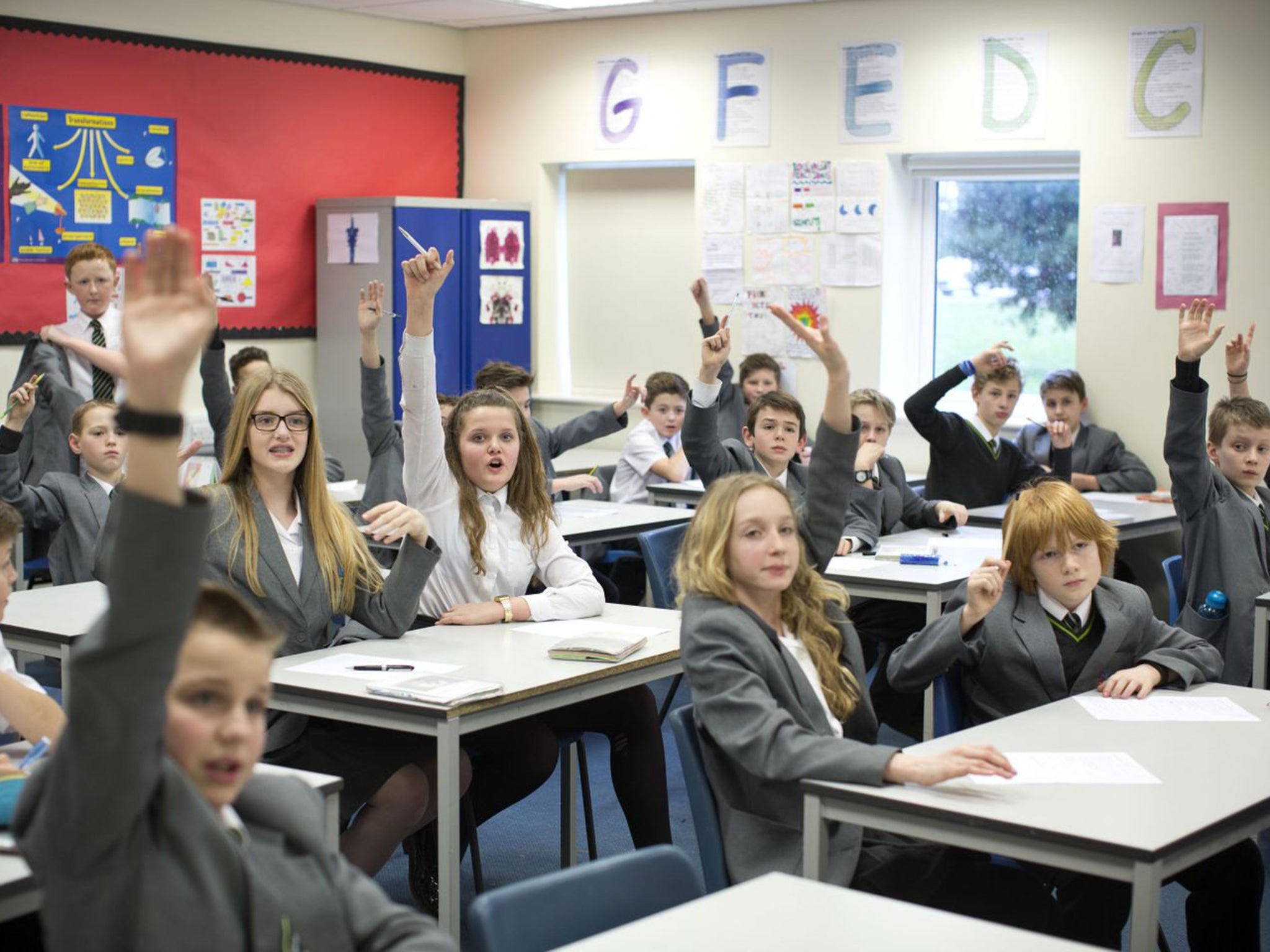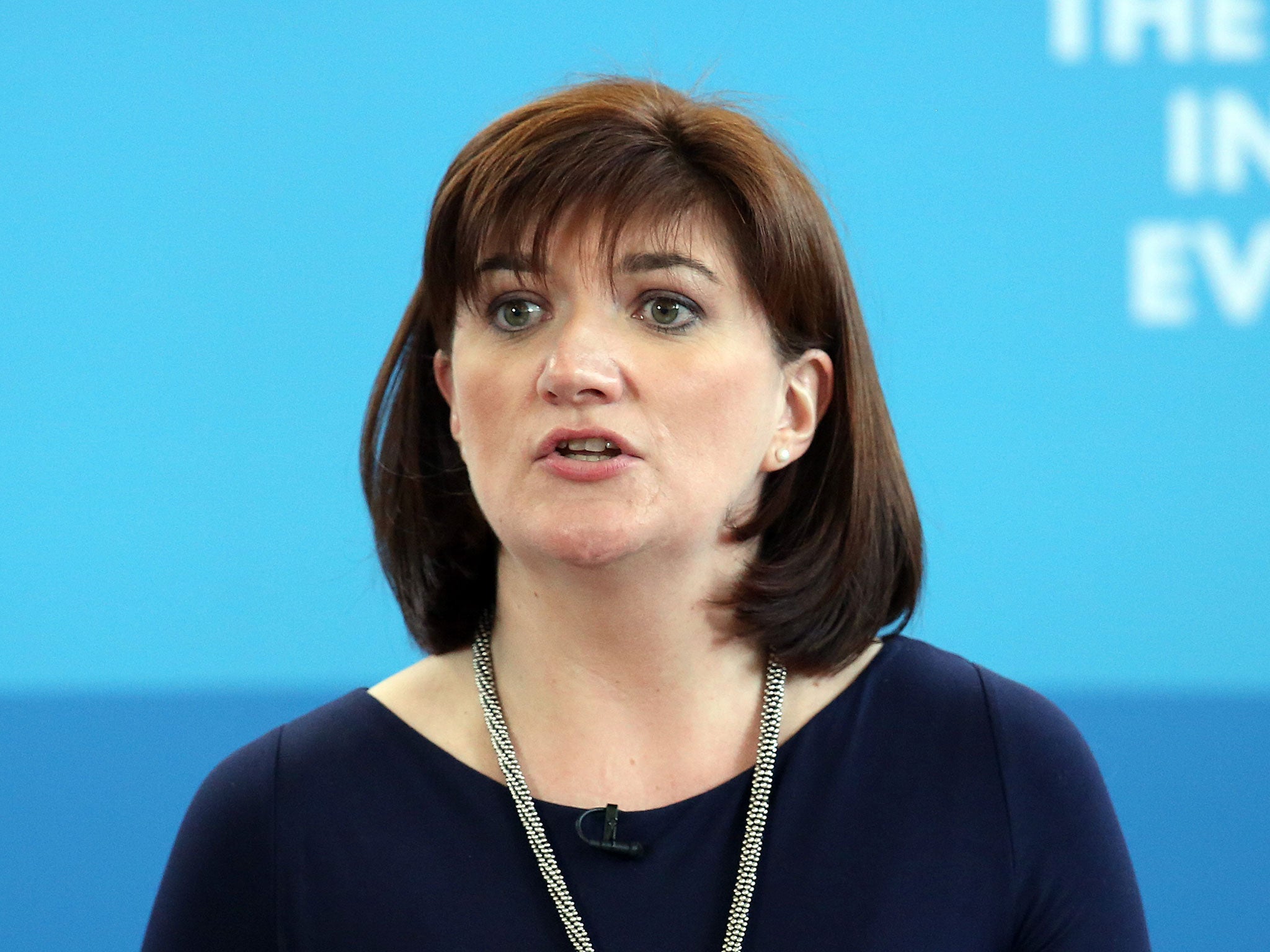Sevenoaks is split over much-delayed decision on controversial grammar school annexe
If Weald of Kent Grammar School is given the go-ahead for an annexe in leafy Sevenoaks, it will be the first selective state school to open in 50 years. And many local pupils aren't happy about it, says Sarah Cassidy

Your support helps us to tell the story
From reproductive rights to climate change to Big Tech, The Independent is on the ground when the story is developing. Whether it's investigating the financials of Elon Musk's pro-Trump PAC or producing our latest documentary, 'The A Word', which shines a light on the American women fighting for reproductive rights, we know how important it is to parse out the facts from the messaging.
At such a critical moment in US history, we need reporters on the ground. Your donation allows us to keep sending journalists to speak to both sides of the story.
The Independent is trusted by Americans across the entire political spectrum. And unlike many other quality news outlets, we choose not to lock Americans out of our reporting and analysis with paywalls. We believe quality journalism should be available to everyone, paid for by those who can afford it.
Your support makes all the difference.The waiting is over for nearly 5,000 11-year-olds who were offered coveted places at Kent grammar schools last month.
But in the prosperous commuter town of Sevenoaks, Kent, the waiting goes on for those looking to the education secretary, Nicky Morgan, to rule on whether a grammar school can open a new annexe – in what would be, if approved, the first "new" selective school in 50 years. Hopes that a decision was imminent were dashed when the Prime Minister stepped in to block a decision until after the general election.
Ms Morgan has now been pondering the decision for five months. She was expected to be set to approve the controversial new grammar annexe, which was rejected last year by her predecessor Michael Gove.
But just as an announcement was expected, Number 10 blocked her ruling, saying that the expansion of grammar schools was too controversial an issue to risk restarting the bitter dispute over school selection in the run-up to a too-close-to-call election.
If Ms Morgan does approve the controversial project, it looks set to reopen the schism in the Conservative Party over grammar schools and lead to a flurry of new plans to create new grammar annexes across the country.
Although David Cameron pledged that there would be "no return" to the 11-plus or new grammar schools when he became party leader, senior Tories have long campaigned for the return of grammar schools. More than 70 Conservative MPs – including the former defence secretary Liam Fox, the former leadership contender David Davis, and the chair of the 1922 Committee, Graham Brady, who resigned from the Shadow Cabinet in 2007 over Mr Cameron's opposition to grammar schools – have backed a campaign to bring back grammar schools by Conservative Voice, a traditionalist Tory group.
Cameron himself signalled a change of policy in February when he said that grammar schools should be allowed to expand if that is what local parents want. This was seized on as tacit support for proposals for Weald of Kent Grammar School in Tonbridge, Kent, to open up an all-girls campus 10 miles away in Sevenoaks – though Mr Cameron insisted that the final decision was up to Ms Morgan.
But, if the Conservative Party is divided over grammar schools, then so is the town of Sevenoaks.
Knole Academy, the town's only secondary school until a Christian free school opened 18 months ago, has written to Ms Morgan in a last-ditch effort to try to persuade her to reject the proposals, which, it argues, would undermine the school's co-educational and all-ability character by creaming off the brightest girls for the new grammar annexe.
Mary Boyle, the head teacher of Knole Academy, says: "We were set up as an academy to be an all-ability school. We have a grammar stream, which we think is very innovative. With each year group, we are finding we are getting more higher-level students. That will be completely undermined if we end up having a grammar school annexe a mile up the road. It will also impact on our gender balance as the proposed annexe will only take girls."
The proposed all-girls annexe of Weald of Kent Grammar School in Sevenoaks would take in 90 girls a year. A previous plan for a co-educational annexe was rejected, as Weald of Kent is a girls' school and it was ruled that a mixed annexe could not be an offshoot of a single-sex school.
Kent is the largest remaining grammar-school area in the country, with 35 wholly selective grammar schools and four partially selective schools.

Mrs Boyle says: "I think we are seen locally as a very good school. We are oversubscribed. You will always get people saying, 'I would not send my child there,' but they have never been here to see the school. It's like people saying, 'I don't like smoked salmon,' without ever trying it.
"I think the word grammar is a really big word in parents' minds. But grammar schools are not necessarily good schools. If you do well at primary school and come from a family where they are pushing you and you get into a grammar school, then you would expect to come out with really good results. So in parents' and politicians' minds, that makes that grammar school a really good school. But that doesn't look at the value added by the school. There are grammar schools in Kent that have been judged to not be doing very well."
If the proposals are approved by Ms Morgan, the decision will be welcomed by senior Tory MPs who have been pressing for a change in the law to allow the creation of new grammar schools to be included in the Conservative election manifesto.
However, opponents of selection say that the decision would be taken to judicial review in an attempt to stop the new annexe going ahead.
Pupils at Knole Academy believe that the school has given them the chance to shine whether they passed the 11-plus or not. Some just missed a grammar-school place; others could have had a grammar place but chose to go to Knole.
Rose Russell, 11, missed passing the Kent test by only a few marks and has been a pupil in Knole Academy's grammar stream since September. "I really liked Knole when I looked round and saw that it's so good for performing arts. My parents really liked that it had a grammar stream."
Nicola Dammes, 12, says: "There is a lot of pressure on kids during the last two years of primary school. It is not just pressure from adults – there is a lot of peer pressure as well. Lots of kids in my year at primary school were really smart and were always talking about how they were going to pass the test. I felt really ashamed that I had just missed it. It is only really since I've been here that it has really boosted my confidence."
Callum Vick, 14, says that he appreciated the range of GCSE options at Knole, including subjects that would not be offered at a grammar school, such as law and engineering. He says: "I failed the 11-plus by 10 marks. I could probably have got into a grammar school on appeal but I chose to go to Knole because when you are working after you leave school you will be working with a broad mix of people and it makes sense to learn the skills to do that."
It has been illegal to set up a new grammar school since legislation introduced by Labour in 1998. In 2007, the Tories said they would not seek to bring back selection, but instead would expand the academy-schools programme. But in 2011, the then education secretary, Michael Gove, announced that the 164 remaining grammars would be allowed to expand and, crucially, could also set up satellite schools.
The campaign for a new school in Sevenoaks was started by Andrew and Sarah Shilling, who were concerned that their three sons, now aged 15, 11 and nine, could face a 20-mile round trip to grammar school. Around 1,100 children from Sevenoaks currently travel to selective schools in nearby towns.
Andrew Shilling, 45, an accountant, says: "Whatever happens, this decision has been too late for my two older sons, who have to travel an hour each way to get to their grammar school. Hopefully our youngest will be able to one day go to a Sevenoaks grammar. The people who oppose this do so because they don't like grammars. But my view is that this is the system we have in this county and so if you pass the 11-plus, there should be a grammar school for you to go to that doesn't involve travelling two hours a day."
His wife, Sarah, 42, said: "It is a step in the right direction, but what we really want is a change in the law so a new school can be opened for both boys and girls."
Roger Gough, Kent County Council's cabinet member for education, argues that the new annexe is urgently needed to help to fill a shortage of places predicted by the end of the decade.
The council still hopes to open the new annexe for September 2016. The new school already has planning permission and a £16m building fund but concerns have been raised that the delay could see costs spiral.
Mr Gough says: "Obviously we are hoping for a decision soon as time is very much moving on and we hope to be able to open the new annexe next September.
"Ideally, we would like to develop a school for both boys and girls on the site. Our projections show that we will need another 14 forms of entry by the end of the decade. We will need both selective and non-selective places. This is part of the answer. If we do not do this here we would have to try to do it somewhere else."
David Bower, the chair of governors at Weald of Kent Grammar School, hopes that Ms Morgan makes a decision soon. He attended a recent meeting with Ms Morgan where Department for Education lawyers asked for clarification that would demonstrate that the proposal was for an annexe, not a new school in its own right.
"There is bound to be a legal challenge to us and Kent County Council," he says. "There are a lot of people in the country who do not agree with grammar schools, so they will try to make sure that this doesn't happen. So it is not surprising that the Department for Education is concentrating on the legal aspects. The lawyers are going to be the ones who are going to say to the Secretary of State that the bid ticks all the legal boxes. We always knew this was going to be a challenge. We think our bid is legal. But it is also highly political. I think they are just waiting for the right moment."
Subscribe to Independent Premium to bookmark this article
Want to bookmark your favourite articles and stories to read or reference later? Start your Independent Premium subscription today.
Join our commenting forum
Join thought-provoking conversations, follow other Independent readers and see their replies
Comments